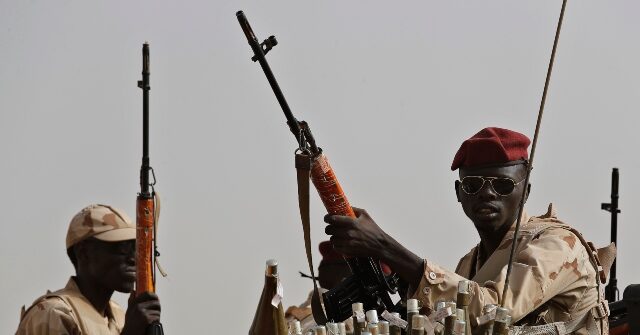The Biden-Harris administration is facing increasing pressure to act in Sudan as the humanitarian crisis has escalated dramatically in recent weeks. Humanitarian organizations, including Doctors Without Borders (MSF), have been forced to abandon operations in a disease-stricken and famine-ravaged refugee camp due to safety concerns. Many critics argue that the administration has largely ignored the situation until it risked becoming politically embarrassing ahead of the presidential campaign. The ongoing civil war in Sudan, which began in April 2023, has resulted in over seven million people being displaced and has become one of the most severe humanitarian catastrophes of our time. Both sides in the conflict have reportedly employed tactics that deliberately inflict starvation and homelessness on civilians, turning the local population from mere collateral damage into their main target.
The civil war has largely revolved around two military leaders: General Abdel Fattah al-Burhan, who commands the national army, and Mohamed Hamdan Daglo, leader of the paramilitary Rapid Support Forces (RSF). Both factions have engaged in ongoing battles resulting in civilian casualties, without making significant gains in territorial control. For instance, civilian areas in Khartoum have faced bombardment, further aggravating the humanitarian crisis. As medics and aid organizations like MSF grapple with the chilling reality on the ground, they have reported severe operational disruptions and threats to their personnel. Recently, MSF announced their decision to suspend operations in Zamzam refugee camp, which is facing blockage of supplies amidst ongoing siege by RSF.
With around 800,000 civilians trapped in North Darfur’s conflict zones, the plight of the Sudanese people has become increasingly desperate. Reports from residents convey harrowing experiences of shelling and constant threats to their lives. MSF highlighted the suffering of the vulnerable population, noting that many children are on the verge of starvation, underlining the urgent need for increased humanitarian intervention. Claire San Filippo, a spokeswoman for MSF, described the situation as going beyond an emergency, labeling it a nightmare with potentially tragic outcomes unless immediate action is taken. Amid this escalating crisis, the Biden administration’s recent attempts to engage have drawn criticism for being a late and inadequate response.
Several humanitarian advocates have likened the administration’s last-minute involvement in Sudan to a classic instance of “too little, too late,” suggesting that meaningful action should have been prioritized much earlier. Cameron Hudson, a former director at the National Security Council, stated that the toll of famine could result in the deaths of two million Sudanese before President Biden ends his term. He remarked that, unless there are rapid and impactful changes, Biden’s commitments to Africa risk being seen as hollow promises. The administration’s struggle to assert its influence in Africa is further compounded by the growing presence of China and Russia, both of which engage with African countries without imposing the same moral conditions typical of U.S. assistance.
Despite the heavy weight of political rhetoric, the Biden administration has faced challenges in delivering substantial aid or policies that effectively address the complexities of the conflict. Biden’s appeals during speeches, including a recent call to cease blocking humanitarian aid, have not yielded tangible results. Critics note that such statements come too late and reflect a lack of sustained engagement in what is the world’s largest conflict. With the administration pressed for time, experts advise prioritizing initiatives that directly enhance humanitarian access and focus on immediate relief efforts rather than engaging in diplomatic negotiations that are unlikely to yield meaningful outcomes.
The UK Guardian has underscored the dismal state of American diplomacy regarding Sudan, discussing how the entrenched positions of the warring factions make it exceedingly difficult to bring resolution through either monetary aid or military intervention. The column highlights a general reluctance in international circles to resort to military action to alleviate humanitarian crises, whether in Sudan or elsewhere. Such interventions represent what Western nations could uniquely offer in contrast to the authoritarian relations championed by Russia and China. As the internal struggle continues, Burhan and Daglo’s obstinacy leaves the Sudanese people, particularly vulnerable children, facing a grim future, illustrating the heavy costs of inaction amid a dire humanitarian crisis.

